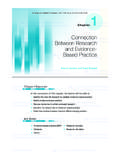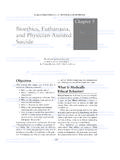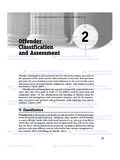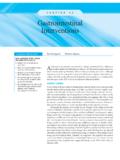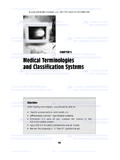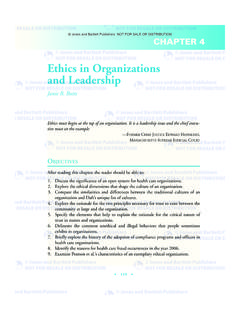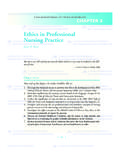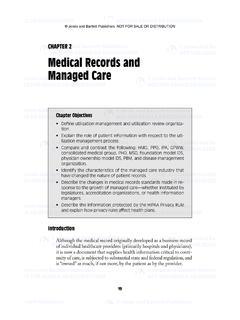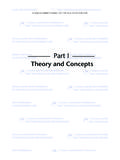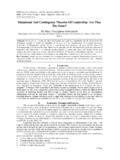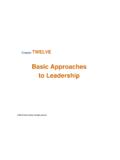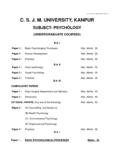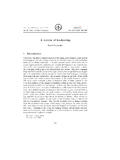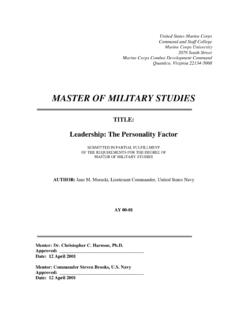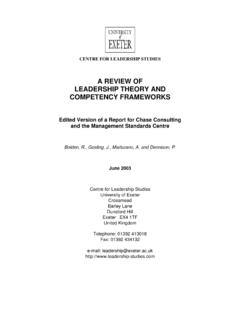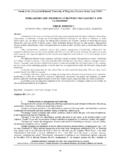Transcription of Evolution of Management, Administrative, and …
1 Ch a p t e r 2 Evolution of management , administrative , and leadership theories HISTORICAL PERSPECTIVEAs long as there have been human endeavors, there have been people willing to take charge people willing to plan, organize, staff, and control the One might say that nature abhors a vacuum and thus someone will always step forward to fill a leadership the natural emergence of leadership grew out of our instinct for sur-vival. In the hostile world of early humankind, food, shelter, and safety needs usually required cooperative efforts, and cooperative efforts required some form of leadership . Certainly leadership was vested in the heads of early families via the patriarchal system. The oldest member of the family was the most experienced and was presumed to be the wisest member of the family and thus was the natural families grew into tribes and tribes evolved into nations, more complex forms of leadership were required and did evolve.
2 Division of labor and supervi-sion practices are recorded on the earliest written record, the clay tablets of the Sumerians. In Sumerian society, as in many others since, the wisest and best lead-ers were thought to be the priests and other religious , the ancient Babylonian cities developed very strict codes, such as the code of Hammurabi. King Nebuchadnezzar used color codes to control produc-tion of the hanging gardens, and there were weekly and annual reports, norms for productivity, and rewards for Egyptians organized their people and their slaves to build their cities and pyramids. Construction of one pyramid, around 5000 BC., required the labor of 100,000 people working for approximately 20 years.
3 Planning, organizing, and con-trolling were essential elements of that and other feats, many of them long term. The ancient Egyptian Pharaohs had long-term planners and advisors, as did their 119/27/06 9:57:23 AM1 Managing HealtH education and ProMotion PrograMstemporaries in China. China perfected military organization based on line and staff principles and used these same principles in the early Chinese dynasties. Confucius wrote parables that offered practical suggestions for public the Old Testament, Moses led a group of Jewish slaves out of Egypt and then organized them into a nation. Exodus, Chapter 18, describes how Moses chose able men out of all Israel and made them heads over the people, and differentiated between rulers of thousands, rulers of hundreds, rulers of fifties and rulers of tens.
4 A system of judges also evolved, with only the hard cases coming to city-states of Greece were commonwealths, with councils, courts, admin-istrative officials, and boards of generals. Socrates talked about management as a skill separate from technical knowledge and experience. Plato wrote about spe-cialization and proposed notions of a healthy Roman Empire is thought by many to have been so successful because of the Romans great ability to organize the military and conquer new lands. Those sent to govern the far-flung parts of the empire were effective administrators and were able to maintain relationships with leaders from other provinces and across the empire as a are numerous other ancient leaders who were skillful organizers, at least as indicated by their accomplishments, such as Hannibal, who shepherded an army across the Alps, and the first emperor of China, who built the Great Wall.
5 Many of the practices employed today in leading, managing, and administering modern organizations have their origins in concepts of authority developed in a religious context. One example is the Roman Catholic Church with its efficient formal organization and manage-ment techniques. The chain of command or path of authority, including the con-cept of specialization, was a most important contribution to management also wrote about authority, stressing that it comes from the consent of the masses. However, the ideas Machiavelli expressed in The Prince are more often viewed as mainly concerned with leadership and management theory has military origins, probably because efficiency and effectiveness are essential for success in warfare.
6 The concepts of unity of command, line of command, staff advisors, and division of work all can be traced back at least to Alexander the Great, or even earlier, to Lao CONCEPTS pecialization, division of work, path of authority, and chain of command are all important elements of 129/27/06 9:57:23 AM Evolution of management , administrative , and leadership theories 13 The Industrial Revolution created a need for new thinking and the refinement of old thinking. Time and motion studies intensified the division of work, as did centralized production and research and management theory is discussed in the next section. The preceding his-torical review indicates that thinking about management and leadership is in large part situational and that practices evolved to deal with new situations that arose.
7 It also indicates that yesterday s principles and theories are surprisingly contem-porary and surprisingly sophisticated. Some overlap occurs, of course, and some gaps. Today s theorists have attempted to fill in the gaps and adapt the theories to current situations. Yet, like in other areas of thought, not much is of recent origin in the field of management management THOUGHTT here are numerous management theories , but they more or less fall into four groups: the scientific approach, the systems approach, the humanistic approach, and the contingency Scientific ApproachNot surprisingly, the scientific approach uses the scientific method to achieve max-imum output, minimum strain, elimination of waste, and reduction of inefficiency.
8 Automation is encouraged. Where human involvement is required, rules, laws, and formulae replace individual judgment. Individual behavior is recorded and analyzed so that it can become the basis of rules. Scientific research is used to try to discover the best way to do a job. Workers are scientifically selected and trained to ensure that work is done as efficiently as possible. Work is studied so that managers are given the work for which they are best fitted, as are the employees they CONCEPTM aximizing output and efficiency and minimizing strain and waste are important elements of overriding concern is that competence govern the division of labor. This principle leads, of course, to standardization and specialization as well as hierar-chy.
9 Written rules determine the work each person performs as well as the promo-tion of employees into management 139/27/06 9:57:24 AM1 Managing HealtH education and ProMotion PrograMsNaturally, the emphasis on written rules led to the formulation of what are now known as the classical principles of management , summarized as follows:Division of work and specialization should characterize any enterprise, and management should be a separate function. Departmentalization is by process or should be equal to responsibility, with enough authority granted to ensure is required to ensure that the best interests of the organization are of direction and unity of command are required so that people receive direction from only one of individual interests must occur so that the general inter-est is best is desirable, especially centralization of decision is essential for everything, and an orderly process and orderly appearance are should be adequately and fairly remunerated to reduce employee turnover and increase emphasis is on production, and standards and incentive rewards are used to maximize scientific approach.
10 Not surprisingly, gave rise to the systems approach. The two approaches share many features but differ in Systems ApproachThe first task of this approach is to break the whole into logical parts that are inter-connected in an orderly fashion. The next task is to study the component parts and strive to understand how they perform in various circumstances. The application of systems analysis techniques to management resulted in identification of seven interconnected systems that could be studied separately or as parts of the whole of management :1. Planning is the process of specifying goals, establishing priorities, and otherwise identifying and sequencing action steps to accomplish the Organizing is the establishing of a structure or set of relationships so that the plan can be Staffing is the assigning of personnel to specific roles or functions so that the organization works as Directing is the making of decisions and the communication of them to the staff who will implement Coordinating is the task of directing the various components, and otherwise communicating between the units so that their interrelationships are smooth as is the function of the entire enterprise.
